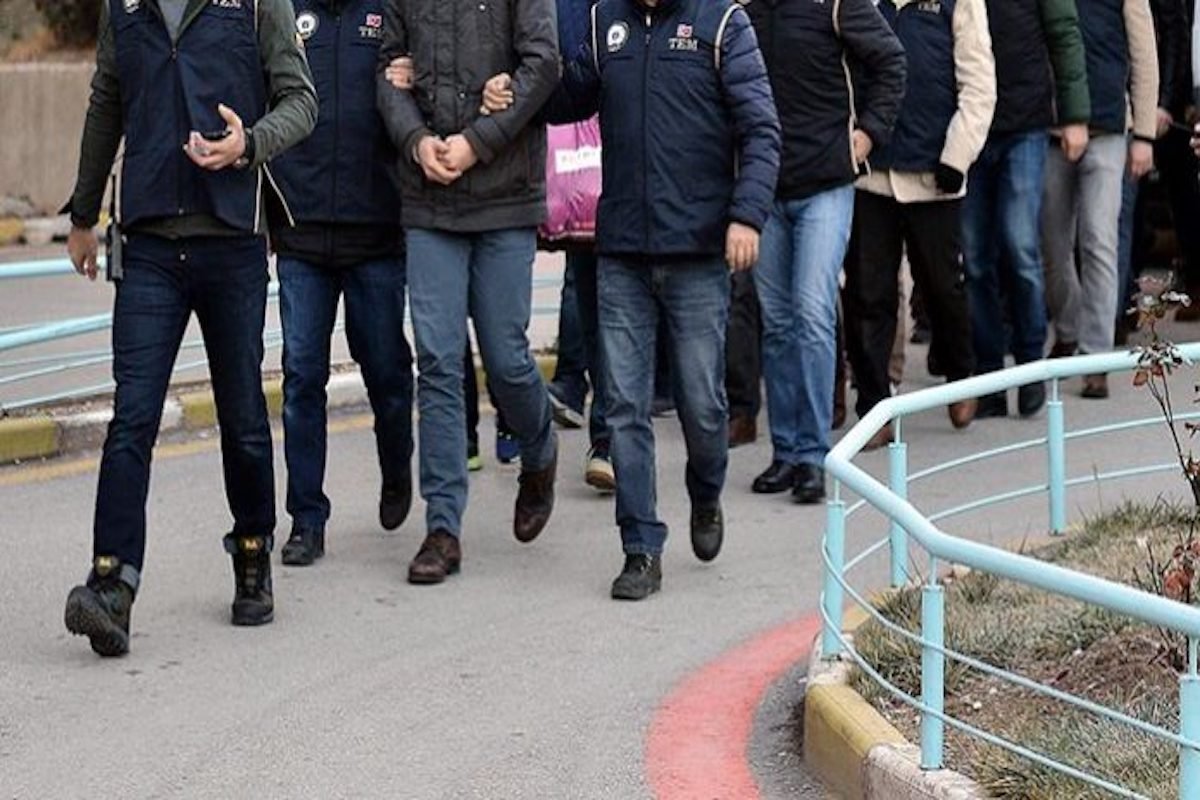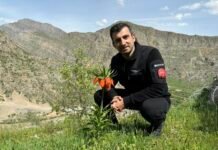The Council of Bars and Law Societies of Europe (CCBE), the European Federation of Journalists (EFJ), and the European Association of Judges (EAJ) have jointly and firmly condemned the ongoing widespread persecution of lawyers, journalists, judges and prosecutors in Turkey.

Recalling that the judiciary, the legal profession and the media represent the cornerstone of a democratic state, the CCBE, EFJ and EAJ has also urged the Turkish government to restore an independent judicial system in accordance with the rule of law; Ensure freedom of expression and of the media; Guarantee to all citizens the fundamental right of access to justice and access to a lawyer; Respect its international commitments to protect human rights, as guaranteed under the European Convention of Human Rights and other international agreements; Uphold the rule of law and democracy in the country.


“Currently there are around 2000 (out of 4088 dismissed) judges and prosecutors, 350 lawyers and around 150 journalists and media workers being detained, with a further 867 lawyers being prosecuted. Most of them are being targeted solely for carrying out their professional activities, on the basis of alleged accusations of supporting terrorist organisations. In many cases, they are detained without charges and without being brought before a judge. When Turkish courts issue detention warrants, they order the freezing of assets, leaving the detained unable to support their families.
The adopted decree-laws undermine the right of the defense. In anti-terror legislation related cases, the detained have no access to a lawyer for the first five days of police custody, and this right can be suspended for up to six months. When access to a lawyer is authorized, lawyer-client confidentiality is violated: clients’ interviews in prisons are recorded and often take place with the presence of a police officer in the room, and documents are confiscated and checked. Furthermore, several non-governmental organisations have expressed their concern about frequent episodes of mistreatment against detainees.
The undersigned organisations emphasize that an independent judiciary is an essential component in upholding the rule of law in a free society. It is guaranteed by the United Nations Basic Principles on the Independence of the Judiciary, which provide that the independence of the judiciary shall be guaranteed by the State and enshrined in the Constitution or the law of the country. The Basic Principles provide that it is the duty of all governmental and other institutions to respect and observe the independence of the judiciary. The absolute necessity of and the requirements for an independent judiciary in a democratic state are clearly stated in the Recommendation 2010/12 of the Committee of Ministers of the Council of Europe, as well as in several Opinions of the Consultative Council of European Judges. The central element is the balance of powers which requires that any influence on the judiciary by the government, the president and the parliament is excluded.
Lawyers play a fundamental role in ensuring the protection of human rights and fundamental freedoms. As highlighted in the Council of Europe recommendation on the freedom of exercise of the profession of lawyer N°R (2000) 21 from 25 October 2000, “all necessary measures should be taken to respect, protect, and promote the freedom of exercise of the profession of lawyers without discrimination and without improper interference from the authorities or the public, in particular in the light of the relevant provisions of the European Convention on Human Rights”. Furthermore, in accordance with the United Nations Basic Principles on the Role of Lawyers, governments shall ensure that lawyers are able to perform all of their professional functions without intimidation, hindrance, harassment, or improper interference (Principle 16). In addition, lawyers shall not be identified with their clients or their clients’ causes as a result of discharging their functions (Principle 18).
“Everyone has the right to freedom of expression. This right shall include freedom to hold opinions and to receive and impart information and ideas without interference by public authority and regardless of frontiers. This article shall not prevent States from requiring the licensing of broadcasting, television or cinema enterprises”, states Article 10 of the European Convention on Human Rights (ECHR). Moreover, the Council of Europe Commissioner for Human Rights Nils Muižnieks stated in a detailed Memorandum on freedom of expression and media freedom in Turkey of 15 February 2017, that “the overly wide application of the concept of terrorist propaganda and support of a terrorist organisation, including to statements and persons that clearly do not incite violence, reflects a mistaken belief that restricting freedom of expression in violation of international human rights norms will help solve these problems. Violence and the threat to use violence is the defining component of the concept of “terrorism”, which must not be used as a catch-all label to punish statements that do not contain these elements, even when these statements are non-consensual, shocking or politically embarrassing”.
In a report on “The functioning of democratic institutions in Turkey” from 8 March, the Monitoring Committee of the Council of Europe Parliamentary Assembly (PACE) stressed that: “it remains concerned by the situation of the media in Turkey, the extensive interpretation of the Anti-Terror Law, which contradicts Council of Europe standards, seriously undermines the democratic foundations of the country and leads to criminalization and prosecution of human rights defenders and lawyers.”
The European Federation of Journalists (EFJ) is the largest organisation of journalists in Europe, representing over 320,000 journalists in 71 journalists’ organisations across 43 countries.
The European Association of Judges (EAJ) a regional group of the International Association of Judges (IAJ, founded in 1953) is an association of representative independent national judges’ association of 44 countries. EAJ/IAJ has observer status with the Council of Europe and the United Nations.
The Council of Bars and Law Societies of Europe (CCBE), founded in 1960, is an international nonprofit association which has been, since its creation, at the forefront of advancing the views of European lawyers and defending the legal principles upon which democracy and the rule of law are based. The CCBE is recognised as the voice of the European legal profession representing, through its members, more than 1 million European lawyers. CCBE membership includes the bars and law societies of 45 countries from the European Union, the European Economic Area, and wider Europe.
The CCBE granted its 2016 Human Rights Award to four Turkish lawyers who have been particularly active in the defence of human rights and the rule of law in Turkey: posthumously to Tahir Elçi the President of the Diyarbakır Bar Association, murdered on 28 November 2015, Ayşe Bingöl Demir, Ayşe Acinikli, and Ramazan Demir.
April 5, 2017

















[…] http://stockholmcf.org/ccbe-efj-and-eaj-urge-turkey-to-release-all-judges-prosecutors-lawyers-and-jo… […]